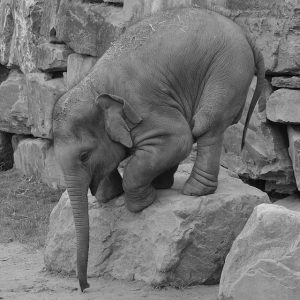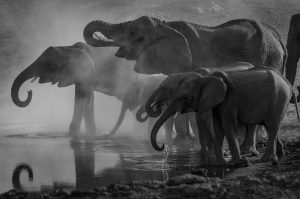FREE THE PRODIGAL SELF
By Bev Lyon
Part I – The Hostage Self
I love stories of all kinds, and one of my favorites is the story of the prodigal son. You may know it. A man has two sons, one who leads a disreputable life in the city and one who stays home to help his father on the farm.
When the wastrel finally returns home, broken and broke, his father throws a banquet and welcomes him with open arms. I respond to the forgiveness and redemption in the story. I always hope someone will give me the opportunity to start over, to try again, and again.
Think for a moment about celebrations of life or memorial services you have attended, those of relatives, friends, and others. It seems that when you put together all the stories that are told, the deceased was courageous, generous, selfless, funny, creative, energetic………, and kind.
Now, that is not to say that the person was a paragon of virtue. In fact, the less of a paragon of virtue they were, the better the memorial often is. A joyful celebration of life includes shared laughter about the foibles of the deceased. In the end we don’t demand perfection of one another. In fact, we most appreciate people when we can accept their humanness.
With that in mind, I have begun to view the prodigal son story from a different perspective. What if instead of waiting for someone else to forgive us, maybe in a memorial service, what if we forgave ourselves and welcomed our own prodigal selves with warm embrace? Could that change our outlook and perhaps even our behavior?
In 2010 my wife Lynn and I were in Dublin during a Fringe Festival, and we saw a comedy duo called The Pajama Men. Two barefoot men came on stage dressed in pajamas and sat down on side-by-side chairs. From there scenes tumbled out like improv gone wild.
At one point one of them plays a man on a train and the other is a little bird that rides on his shoulder. The bird has a refrain, “I am so small,” “I am so small.” This became a catchphrase for us. Whenever something felt too difficult, we said, “I’m so small.”
This phrase resonated with me I think, because one of my judgments of myself is that I lack physical strength and I’m afraid of heights, crowds, and high rates of speed. I am also acutely aware of my hesitation to take overt political action.
I attended UC Berkeley during the sixties where I saw people signing up to go to the South to help register African-Americans to vote. I watched Free Speech rallies and sit-ins on my way to my political science classes. I caught whiffs of tear gas from anti-war protests during my law school exams.
Now, I agreed with all the protests, but I kept going to class or at most stood at the periphery of the rally. Curious, intellectually engaged, but fearful.
However, in my rush to judge myself I forget that there are many times when I have been, if not fearless, at least persistent in the face of fear.
I began to think about this better aspect of myself when I delivered a short eulogy at my ex-husband’s memorial service last year. I had been in poor health during most of our marriage, but, buoyed by the gift of denial, he took me hiking, camping and fishing. I learned to ski. On sheets of ice. Going fast down steep hills.
The fear was palpable, but the experience and the vision were pure reward.
There was sitting tucked behind the pilot in a vintage, two-seater, canvas-sided, face-in-the wind, piper cub seaplane. Once, flying flap-to-flap, with a Canada goose as we shared the air above the river.
There was the truly faith-inspiring sight of seeing storm clouds part unexpectedly to reveal Mt. Denali from base to the 20,310 – foot peak. Breath….catching.
We went on multiple back packing trips. My husband carried the tent, water, stove, food, fishing gear, tent poles, camera, spare shoes etc.
My very large pack was often filled to the top with two down sleeping bags.
One weekend we hiked from Wright’s Lake on Highway 50 into Desolation Wilderness. One long stretch of the trail is so steep, that tall steps have been cut into the granite, a clamber for me on the way up, and a painful jumping process on the way down. Trudging back out the next day my feet and ankles were so swollen, I could barely walk.
By moonlight and flashlight, we made it back to the trail head well past midnight. I remember bursting into tears at the sight of the car. Sometimes courage is simply left foot, right foot.
Rabbi Steven Carr Reuben tells the story of the training of baby elephants by tying them to a small peg in the ground with a rope or chain around their leg. Time and again the baby elephants struggle to get free, but they cannot. At some point they stop struggling.
Even though the elephants grow to the size of huts, even though they can uproot towering trees, they fail to recognize that they could easily dislodge the tiny peg in the ground. Merely the sight of the restraint keeps them in check.
As Rabbi Reuben puts it, “If only they knew how powerful they really are.”
Do you know how powerful you really are? Can you envision that?
In the 1970s a condition was recognized that causes hostages to develop a psychological alliance with their kidnappers as a survival strategy. It’s called the Stockholm Syndrome. Or we could call it the Battered Spouse Syndrome or the Abused Child Syndrome. When the victim perceives that he or she has no power, they may stop struggling.
Rabbi Reuben goes on to say, “One of my frustrations almost daily as a rabbi is to see so many who still live like our ancestors imprisoned in Egypt. They are fearful to have a vision of their lives that exalts them and could set them free.”
Sometimes we have limitations that we have outgrown, but we don’t realize it. Like the elephants. Sometimes outside forces are so overwhelming that we cannot sort out what our strengths really are.
Here at UUCM we are called upon to the bless the world, to take action, to have courageous love. It sounds so straight forward coming from the pulpit or from General Assembly. I have endless admiration for those who can. But some of us are overwhelmed and don’t know how to begin.
James Baldwin wrote, “It’s not the world that was my oppressor, because what the world does to you, if the world does it to you long enough and effectively enough, you begin to do to yourself.”
Repetitive negative vision is a learned behavior. I believe a positive vision can be a learned behavior as well. We live into the labels we give ourselves.
Personally, I have decided to discard the, “I’m so small” refrain.
What is your, “I can’t” belief? Your, “I’m not” belief?
“I can’t speak in public?” “I can’t walk that far?” “I’m not brave?” “I’m not a good enough?” “I can’t, I’m not, I can’t.”
What negatives do you habitually tell yourself?
What negatives hold you hostage?
Part II – Free the Prodigal Self
When we left the original story of the prodigal son, a big celebration was about to break out. Servants were gathering fresh vegetables from the garden and picking the ripest fruit from the trees. Clean clothes were laid out for the prodigal son while he took a long-needed bath.
But what about the other son? Remember him? The one who stayed home and worked day in and day out to help his father on the farm?
Can’t you just hear him?
“I cannot believe you’re giving my no-good brother a banquet. With the calf that I spent all spring fattening up. Where’s my reward? The father explained that the young man had been lost and now he was found. It was an occasion for joy.
Don’t let the older brother spoil the party. For all we know the younger son wasn’t so much lost as seeking and finding. Yes, it took a long time, but maybe he came back with experiences that taught him compassion and a wisdom he could not have discerned in any other way. And he did return in due course.
We shouldn’t berate ourselves for not catching on sooner, I tell myself. Our habits and fears come from long forgotten events and stories. They may have been protective for a time in your life. But could you let them go? Can you let them go?
The kind of change I’m talking about is not like making a New Year’s resolution. This is about shifting your vision of yourself. We need to develop a vision somewhere in our core that we are strong or compassionate or wise or capable – whatever it is we think we aren’t or whatever it is we think we can’t do.
This country and this world need us in all our glory. It is not enough anymore simply to be curious and intellectually engaged. We need to stand up for justice, stand up for love, stand up for freedom. We must be persistent in the face of fear.
I find it useful to have an image in mind, a symbol, a talisman, to remind me of my new vision.
Quite by accident I discovered something that made me see myself differently. I started wearing a hat. {put on hat}. The alchemy of the hat is that when I wear it I see myself as taller. I feel stronger, and by some magic others treat me as if I were stronger.
Clerks, who have been known to look right over the top of my head to speak to the person standing behind me, frequently comment on my hat. They see me. Or at least they see the first tentative steps of a new me.
Now, maybe hats are not your thing. I also carry my dad’s pill box. {shake into mic} No one knows I have it in my pocket, but it conveys love and strength to me.
Think of something that you could carry. Not so large or ostentatious to take you out of your comfort zone; just enough to ease you out of your complacent zone.
Maybe a Black Lives Matter bracelet or a rainbow bracelet. Prayer beads.
Or, maybe you could stick an affirmation to your mirror and repeat it to yourself each morning. How powerful could you become?
Psychology tells us to band with others to enlist their support for change.
Even one person can lighten the load. If the task seems too challenging, gather more people and dress for the occasion.
How powerful could we become? Look around here at everyone. What… if .…10% of us or 25% or 50% of us each adopted an image of a new powerful self. Whoa! I feel an earthquake coming on.
What if we had a secret handshake? Perhaps a hug. What if we had gang colors? {show Standing on the Side of Love shirt} What if we wore bracelets that said, “UUCM – With Courageous Love.”
Some of you may remember Arlo Guthrie’s Alice’s Restaurant Song. It was a shaggy dog story of a song that was one of the funniest and most popular anti-draft, anti-war songs of the Vietnam Era. Arlo sang in a voice that made Bob Dylan sound melodic, which is the only reason I dare continue.
Let me quote his words from the song about protesting at the draft board,
“And if three people do it, three, can you imagine, three people walking in singin’ a bar of Alice’s Restaurant and walking out. They may think it’s an organization. And can you, can you imagine fifty people a day, I said fifty people a day walking in singin’ a bar of Alice’s Restaurant and walking out. And friend they may think it’s a movement.”
And that’s what it is, “The UUCM Courageous Love Movement” and all you got to do to join is sing it the next time our chorus come’s round.
THE COURAGEOUS LOVE MOVEMENT
You can do anything you want if you’ve got courageous love.
You can be anyone you want if you’ve got courageous love.
Walk right in with your sense of wonder, cultivate your strength and yell like THUNDER.
You can do anything you want if you’ve got courageous love.
REPEAT
Bev Lyon
July 22, 2018


